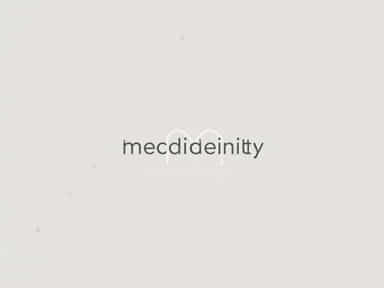In the world of vocabulary, where new expressions emerge and old ones evolve, it’s natural for people to wonder whether certain words actually exist or are commonly accepted in English. One such word is mediocrity. You might have heard it used in conversations, debates, or literature, and it often carries a negative undertone. But is mediocrity a real English word, and if so, what does it truly mean? Understanding its usage, origins, and connotations can help clarify its role in both casual and formal communication.
Definition of Mediocrity
The word mediocrity is indeed a recognized English word. It is a noun that refers to the quality or state of being mediocre. The term is often used to describe something that is average, ordinary, or unremarkable. It can refer to people, performance, skills, or even ideas that fall in the middle range not terrible, but not impressive either.
Standard Dictionary Meaning
According to most English dictionaries, mediocrity is defined as:
- The state or quality of being mediocre.
- Ordinariness as a result of being average in quality, performance, or ability.
- A person of mediocre ability or performance.
This definition confirms that mediocrity is well-established in English and widely accepted in both speech and writing.
Origin and Etymology of Mediocrity
The word mediocrity has Latin roots. It comes from the Latin wordmediocritas, which itself derives frommediocris, meaning moderate or in the middle. This historical origin reflects its current meaning quite accurately something that is not at the extremes, but rather sits in the center, neither excellent nor poor.
Examples of Mediocrity in Sentences
To better understand how mediocrity is used in context, here are a few examples of sentences where the word appears naturally:
- He was tired of living a life of mediocrity and longed for something more meaningful.
- Despite their talent, the team settled into mediocrity because of a lack of discipline.
- The film was a disappointment it never rose above mediocrity.
- She refused to accept mediocrity and pushed herself to excel.
These examples illustrate that mediocrity is often used in a slightly negative tone, indicating a lack of excellence or passion.
The Connotation of Mediocrity
While mediocrity is not an insult in itself, it generally carries a critical tone. It implies that something could be better but remains just okay. In modern culture, where striving for excellence is celebrated, mediocrity is often looked down upon. However, it’s important to recognize that not everything needs to be exceptional, and in some cases, mediocrity is acceptable or even necessary.
Why the Word Can Feel Negative
Here are a few reasons why mediocrity might come across as a negative term:
- It suggests complacency or lack of ambition.
- It implies that potential has not been fully realized.
- It may be used to highlight disappointment or underachievement.
Despite these associations, the word itself is neutral in structure it’s how and where it’s used that determines the emotion behind it.
Is Mediocrity a Commonly Used Word?
Yes, mediocrity is a commonly used English word, especially in contexts where people are evaluating quality or performance. You’ll often find it in motivational speeches, business discussions, education, and reviews of art, sports, or entertainment. It is frequently employed when comparing different levels of achievement or describing dissatisfaction with outcomes that fail to impress.
In Literature and Media
Writers and speakers often use mediocrity as a thematic element. For example, in books and films, characters might struggle with feelings of mediocrity, or the plot might revolve around someone trying to rise above it. Because the term evokes a sense of missed potential or stagnation, it can be powerful in storytelling.
Synonyms and Antonyms of Mediocrity
To gain a better sense of the word’s meaning, here are some common synonyms and antonyms:
Synonyms
- Ordinariness
- Commonness
- Average
- Unremarkableness
- Normalcy
Antonyms
- Excellence
- Brilliance
- Superiority
- Distinction
- Greatness
These alternatives help show the wide gap in tone between mediocrity and excellence. Using the right synonym or antonym depends on the intended nuance of the sentence.
How to Use Mediocrity Effectively
When using the word mediocrity, consider your audience and the context. It is best suited for formal or semi-formal situations, such as:
- Writing essays or opinion pieces about performance or effort.
- Discussing areas of improvement in team settings.
- Reflecting on personal growth and goals.
Avoid using it in overly casual conversations unless you’re making a point or expressing disappointment. Since the term can sound judgmental, it’s important to use it thoughtfully and respectfully.
Mediocrity vs. Mediocre
It’s worth noting the relationship between mediocrity and mediocre. The word mediocre is an adjective that describes the quality of something, while mediocrity is the noun form that names the quality itself.
- Mediocre: The meal was mediocre nothing special.
- Mediocrity: The restaurant is known for its mediocrity.
Using them interchangeably in the wrong context can make a sentence sound awkward. Knowing when to use each word strengthens your command of English vocabulary.
Is Mediocrity a Word?
Without a doubt, mediocrity is a valid and widely recognized word in the English language. It plays an important role in describing the state of being average, especially in fields where excellence is expected. Although it often has a negative connotation, it is not inherently insulting. Whether you’re writing an essay, analyzing performance, or simply expanding your vocabulary, mediocrity is a useful word to know and use accurately.
Understanding its meaning, origins, usage, and emotional tone allows you to employ it effectively in different situations. So, if you’ve ever questioned whether mediocrity is a real word, you can now be confident that it is and that it holds a specific and relevant place in everyday English communication.
